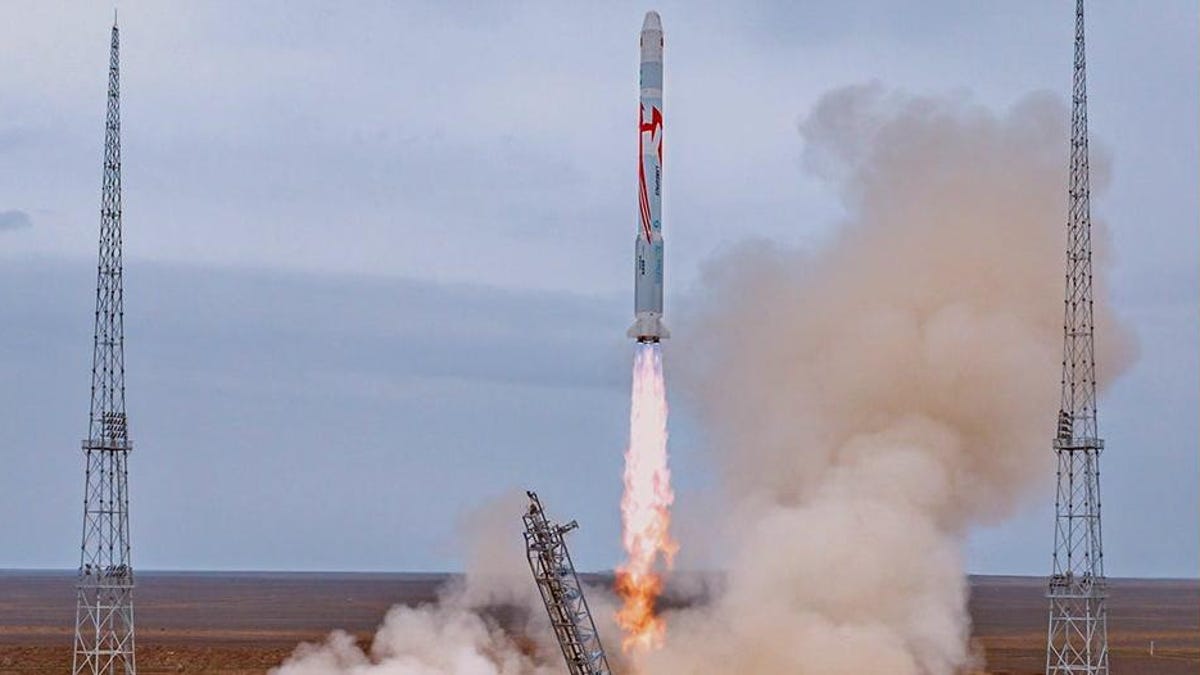
A private space company in China made aerospace history by launching its methane-fueled rocket to orbit, ushering in a new era of cleaner, safer rocket fuel that’s better suited for reusability.
Landspace’s Zhuque-2 launched at 9:00 p.m. ET on Tuesday from the Jiuquan Satellite Launch Center in the Gobi Desert, the company announced. This was the rocket’s second attempt to reach orbit after an unfortunate mission failure in December 2022, which destroyed 14 satellites on board.
Advertisement
This time around, Zhuque-2 reached orbit empty-handed, with no payloads aboard the 162-foot-tall (49.5 meters) rocket. The Beijing-based Landspace declared that the rocket’s second mission was a “complete success.” The U.S. Space Force independently confirmed that Zhuque-2 reached orbit, tracking an object consistent with the rocket’s launch, astrophysicist Jonathan McDowell wrote on Twitter.
Zhuque-2, which translates to Vermillion Bird-2, is equipped with gas generator engines capable of producing 243 metric tons of thrust. The rocket can carry payloads weighing as much as 6 metric tons to low Earth orbit, or a reduced 4 metric ton payload capacity to a Sun-synchronous orbit, according to Landspace.
Advertisement
Advertisement
The space industry is looking to utilize methane as the next-gen rocket fuel as it’s considered to be cleaner and safer than liquid hydrogen, kerosene, and other propellants currently in use; it is also the cheapest alternative which makes it more desirable for reusable rockets.
SpaceX is also hoping to use liquid methane fuel to power its next generation Starship rockets, which failed to reach orbit during its initial test flight in April. Another company, Relativity Space, launched a methane-fueled rocket in March, Terran-1, but an engine failure prevented the rocket from reaching orbit. Other rockets that are going to rely on methane fuel include Rocket Lab’s Neutron, Blue Origin’s New Glenn, and Relativity Space’s Terran R (a successor to Terran-1).
Landspace beat those other companies to this vaunted achievement after its own Zhuque-2 reached orbit. The Chinese startup had attempted to launch a three-stage Zhuque-1 rocket, which used solid propellant, back in 2018. Zhuque-1 failed to reach orbit, afterwards the company was set on switching to liquid methane as propellant instead.
Landspace’s success marks a major milestone for China’s private space sector, which has been rapidly growing over the past 10 years after the Chinese government allowed investments to flow into spaceflight companies rather than continue to let state-owned enterprises dominate the field.
Advertisement
For more spaceflight in your life, follow us on Twitter and bookmark Gizmodo’s dedicated Spaceflight page.
Services Marketplace – Listings, Bookings & Reviews